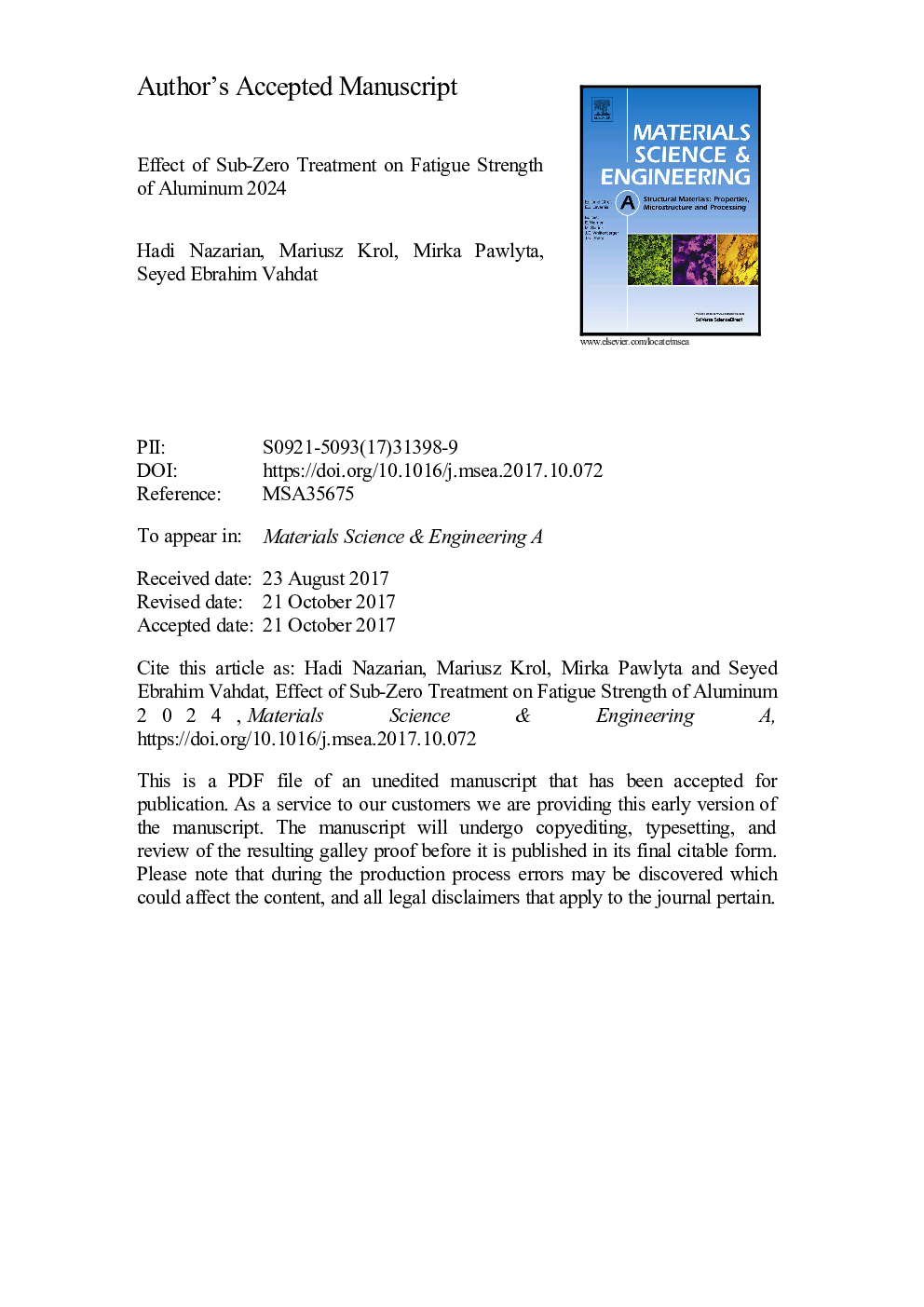| Article ID | Journal | Published Year | Pages | File Type |
|---|---|---|---|---|
| 7974421 | Materials Science and Engineering: A | 2018 | 16 Pages |
Abstract
Challenge of change of alloy properties during service life of extra safety parts was always considered by industrialists and consequently researchers. Fuselage and wings of airplane repeatedly in ascent and descent is affected respectively by cooling to â 55 °C and heating to room temperature. Hence, the effect of above temperature changes on tensile and fatigue strengths are unknown. In this study in laboratory, the situation of airplane body is tried to simulate and then the changes of microstructure and consequently the changes of tensile properties and hardness after holding for 10 and 4 h were studied respectively in temperatures of â 60 °C and â 196 °C. Results showed that by using of sub-zero treatment, hardness is without change but tensile properties are increased to control specimen. In addition, after sub-zero treatment, the fatigue limit of the control specimen has reduced at least 20%.
Related Topics
Physical Sciences and Engineering
Materials Science
Materials Science (General)
Authors
Hadi Nazarian, Mariusz Krol, Mirka Pawlyta, Seyed Ebrahim Vahdat,
